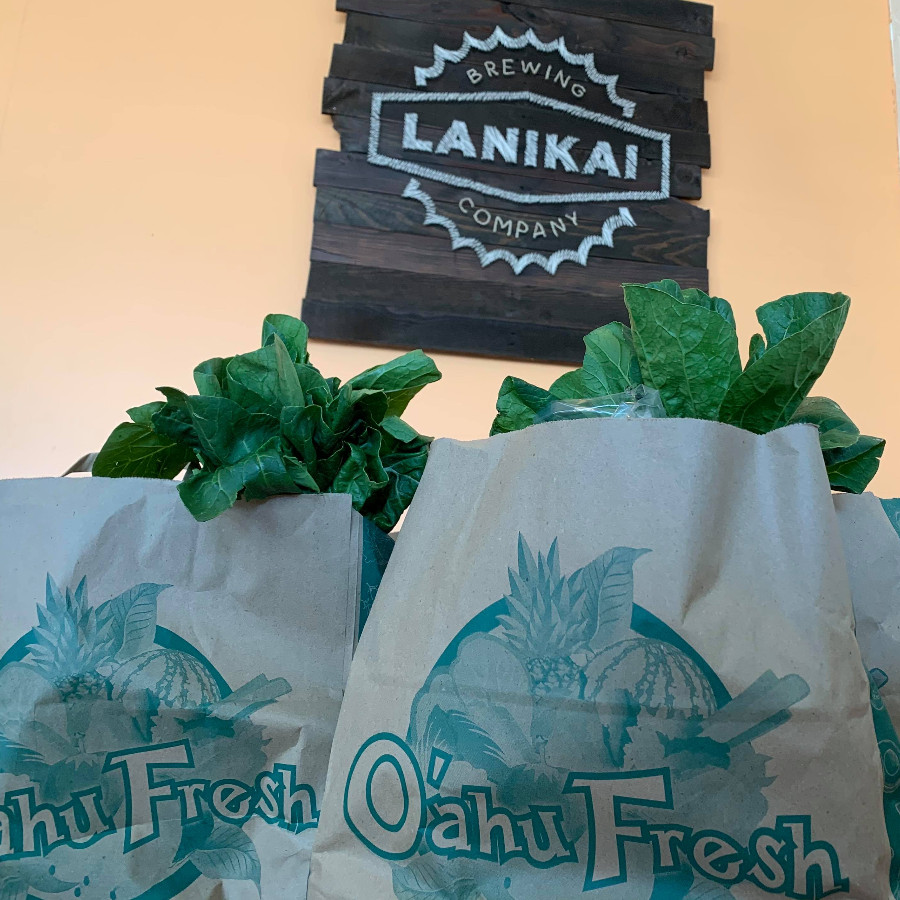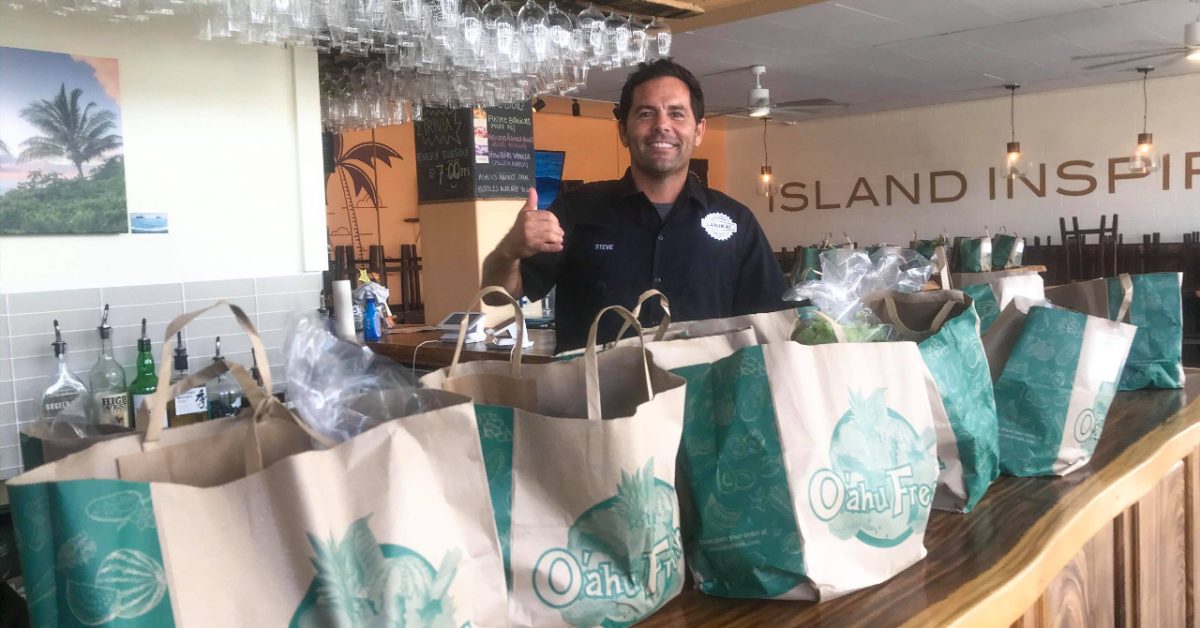In Hawaii, shelter-in-place orders took effect on March 20, and shortly thereafter, the state issued a mandatory 14-day quarantine for anyone arriving on the islands. Whereas at one time 30,000 visitors arrived every day in Hawaii, tourism was essentially shut down overnight. Hotels closed, bars and restaurants were required to operate as take-out only, the local economy plummeted and more than 200,000 people filed for unemployment.
Needless to say, it’s a tough time for craft brewers in Hawaii.
“Our major revenue centers come from on-premise sales, either direct from our tap room or distribution to other bars and restaurants,” Lanikai Brewing Company Co-Founder, CEO and Brewer Steve Haumschild said.
“For the first time in my 20-plus year career as an entrepreneur and 5-plus years in craft beer, I was not able to guarantee hours to my employees.”
But the always-innovative Haumschild, known for his uber-local business strategies and brewing philosophy, didn’t like the idea of sitting on his hands during the shutdown. He was losing sleep over having to trim down his business and reduce his employees’ hours. He tried different methods of fundraising, including tip-matching. He worked with local legislators to get direct beer delivery to consumers temporarily approved. Still, it was not enough to support the brewery’s bottom line, and it became clear that he would need to do something different – drastically different – in order to keep his doors open and his staff employed.
One thing that struck Haumschild about life in the new “pandemic” world was grocery shopping. People dash into stores to get what they need, bundled up in face masks and doing their best to remain six feet apart. Speaking with farmers, whom he typically works with to source fruit and other ingredients used in his beers, he discovered that their community supported agriculture programs, or CSAs, were growing exponentially – so much that a lot of them couldn’t keep up with demand.
“I am sure nobody will be able to get out of their minds what it feels like to walk into a grocery store wearing a mask and trying to get out of there as fast as possible,” Haumschild said. “CSAs were on an overnight rise.”
This realization gave birth to a unique partnership. In early April, Lanikai Brewing Company opened its doors to multiple farms and CSA programs, turning its then-empty taproom into a pickup hub for fresh produce. With farms unable to meet the demands of all the deliveries, customers could come into Lanikai Brewing to pick up their produce – and perhaps buy a couple beers to go as well.

Before long, the brewery was offering pickups three days per week, allowing them to bring more staff back on board and offer more hours. Food trucks, which usually post up outside the brewery, were invited to come back on these pickup days.
“Consumers are coming into our tap room for produce and fruit which supports our local farmers, buying beer to go which supports our brewery staff, and grabbing dinner to go which supports our local food trucks,” Haumschild said.
It gets better. At first, the brewery was merely a pickup location for already-existing CSAs, a way to help out farmers and draw in potential to-go beer business. But the side hustle didn’t stop there for Haumschild.
When he learned that the farmers still had excess product – extra crops that would normally be sold to local restaurants – he decided to create his own CSA, Keo and Company, to help sell the surplus. On its website, Haumschild has aggregated all the products one might find at a farmer’s market – produce, eggs, coffee, tea, jerky, and honey, among others – and is now offering them through the scope of the brewery. Customers can log on to the site and place an order that will then be delivered to their door in a cashless transaction.
The genius in the arrangement, among other things, is that Lanikai Brewing’s employees are the ones who compile and deliver these boxes, which can also include a beer order. In this way, Haumschild has diversified his business, providing his employees with more hours from delivering, packing, sorting, and even harvesting, while at the same time expanding his reach as a brewery in lockdown.
Leading by example, Haumschild is showing others that business can indeed be community-driven, connected, and sustainable – all it requires is a little flexibility, a little patience, and a willingness to think outside the box.
“We are growing at an exponential rate, and if we continue, we will not only be able to provide hours for all of our staff, but potentially hire more,” Haumschild said.
“Just because we are hurting does not mean we cannot help other people. While we have always prioritized our employees, partners and community, during this time we have done everything we can to support them however we can.”
CraftBeer.com is fully dedicated to small and independent U.S. breweries. We are published by the Brewers Association, the not-for-profit trade group dedicated to promoting and protecting America’s small and independent craft brewers. Stories and opinions shared on CraftBeer.com do not imply endorsement by or positions taken by the Brewers Association or its members.


Share Post